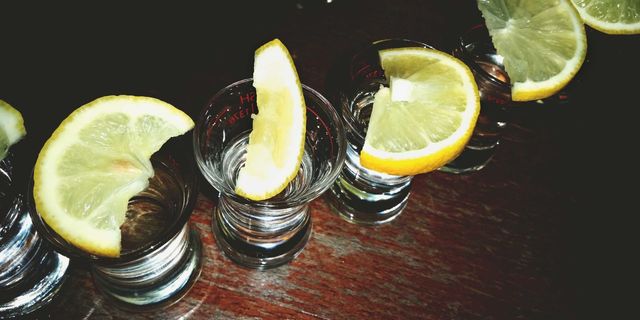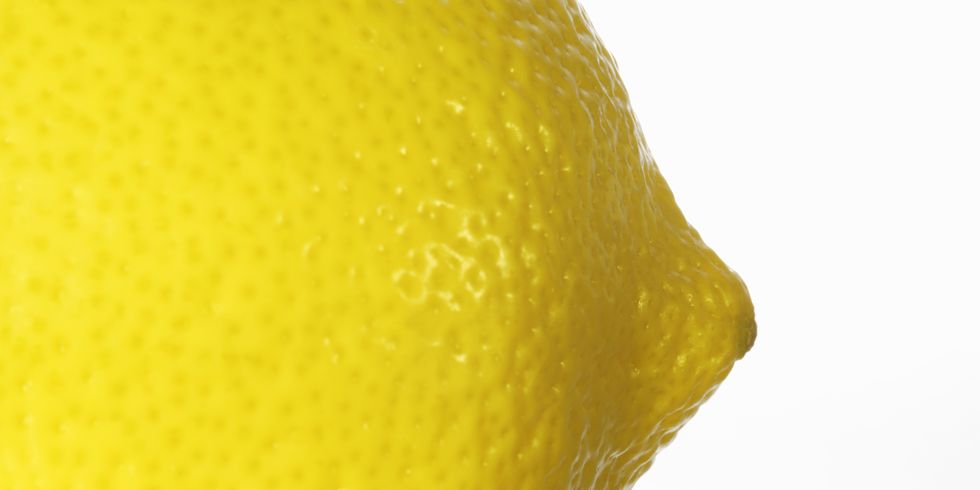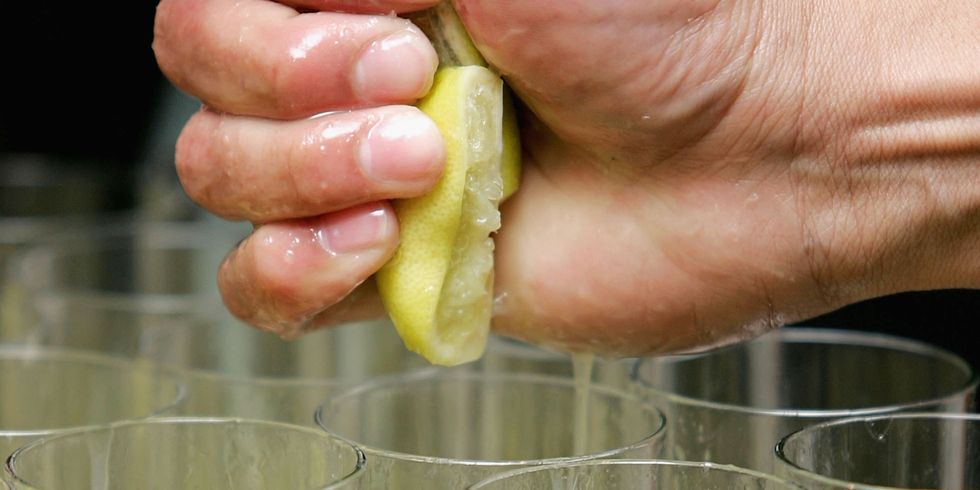Lemon slices floating in a pitcher of iced tea, limes muddled into a mojito, orange slices hanging on the rims of beer glasses: These are all supposed to be relaxing images. But when you think a little bit more deeply about those citrus pieces in your drinks, the ones that are supposed to signal vacation, happy hour, pampering, you might find yourself a little anxious. Because...how clean are these fruit slices, exactly?
For one study published in the Journal of Environmental Health in 2007, researchers swabbed lemon slices that were on their drinks at 21 different restaurants. They found that almost 70 percent of the samples produced some sort of microbial growth, including 25 different microbial species. "The microbes found on the lemon samples in our investigation all have the potential to cause infectious diseases at various body sites, although the likelihood was not determined in this study," wrote the researchers. "Restaurant patrons should be aware that lemon slices added to beverages may include potentially pathogenic microbes."
To find out more, we spoke to Philip Tierno, PhD, a clinical professor of microbiology and pathology at New York University School of Medicine and author of The Secret Life of Germs. He didn't exactly assuage our concerns about the germs that lurk in our margaritas.
In the various studies he's conducted, Tierno said he "always comes up with evidence of contamination from the skin, respiratory secretions, and fecal matter," on the skin of citrus pieces, including E. coli, enterococcus, staph, and the norovirus, the vicious virus that has been known to take down entire cruise ships.
"People are touching the lemon in your glass, handling it, cutting it, placing it in a container or a cup, or a glass; and then picking up those slices at a later point in time and dropping them into a drink and putting them on the rim of a glass," said Tierno. "You can easily see how those lemon slices and lemon wedges can be contaminated."
Even if restaurants and bars regularly wash the lemons and limes they use in cocktails, their bartenders and servers still might not practice good hand-washing, which renders all that ineffective. "Hand washing is one of the things that's not practiced very well, especially after using bathroom facilities. There are many major studies that prove that," Tierno said.
The slightly good news is that, according to Tierno, a particularly stiff drink could have enough alcohol in it to kill any bacteria on the outside of the lemon—but it'd have to be straight alcohol. Mixed drinks dilute the alcohol, so in that case it wouldn't be able to kill the bacteria. And even still, no amount of straight alcohol will kill viruses, only bacteria.
Despite the possible risks, after all these years and all these studies, when asked if he puts a lemon in his drink, Tierno replied, "Yes, I do"—but with some caveats. He'll return a drink if he sees a bartender put their fingers all over the rim of the glass or use a dirty rag to clean the glass. "You have to pay attention," he said.
If you're especially concerned about germs, though, simply ask for the citrus slices on a small plate, squeeze the juice into your drink yourself, and then skip dropping the whole wedge into your drink. Or keep a few of these little packets in your purse. With that in mind: Waiter! A margarita, please.
Follow Delish on Instagram.
















